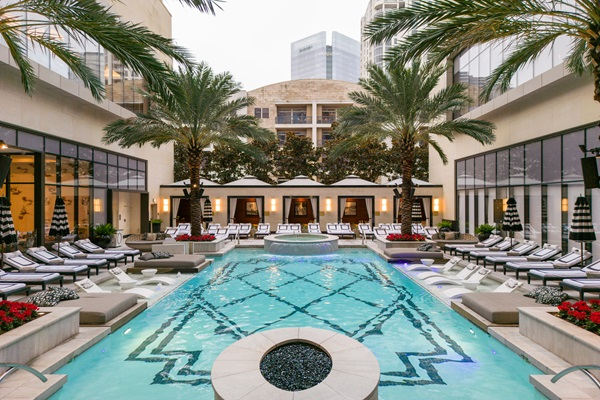7 Ways Hotels Will Change Post-Pandemic
- zcooper25
- May 4, 2020
- 3 min read
Here's what business travelers can expect to find at hotels once it is safe to travel again.

Airlines aren't the only aspect of the travel industry that is being affected by Covid-19. Hotels and other accommodations are also struggling until it is safe to travel again. While some are still operating (and even offering rooms for first responders and those in need), others have closed their doors due to the pandemic.
Though most of us aren't traveling, there are several things you can do while business travel is on hold, including checking your hotel loyalty programs to see if any action is needed on your part. There might be hotel deals that don't involve travel, including earning bonus points for grocery or take-out purchases with your hotel credit card or with their dining programs.
When it is safe to travel again, expect to see changes in accommodations, including some of the ones listed below.
Temperature checks
Some hotels, especially those hosting some of the medical community, are also requiring temperature checks before being able to enter the hotel. Some Millennium Hotels have infrared thermometers at front desks for employees and guests. Wynn Resorts in Las Vegas has thermal cameras to monitor any fevers.
If staff or guests have a fever, they are not allowed into the hotel.
Social distancing and masks
Many hotels have stated that they will enforce social distancing by removing chairs and placing markers to help keep guests apart. Some hotels may require masks be worn in common areas.
Stricter sanitation practices
Daily housekeeping services likely won't be available. Some guests, like the ones at the Four Seasons in New York City who also include medical personnel, are given separate bags to place their dirty towels, dirty linens, and garbage in. Guests then let the front desk know when they are ready to have their bags collected, avoiding contact between employees and guests.
Once guests check-out, rooms are left empty for 24 hours until a sanitation crew in hazmat suits can disinfect. Once the room has been cleaned, the rooms are left empty for another 24 hours. Then, staff wearing PPE's can get the room ready for the next guest.
Marriott is using hospital grade sanitizer to clean their rooms. Additionally, there is a limit to how many guests are allowed per elevator. Hilton Hotels are working with the makers of Lysol and the Mayo clinic to help them develop sanitation practices that will keep guests and employees safe.
Some hotels are using non-human means to keep hotels clean. The Westin Medical Center Hotel in Houston is the first hotel to use robots to sanitize areas with UV lighting. This technology has only been used in medical facilities.
Hotels will need to ensure that they are committed to the cleanliness and safety of guests and employees. We may see hotel inspections that specifically look into how the hotel is keeping clean.
More automation
Expect to see more technology being implemented in the check-in and check-out process. For instance, Hilton already has an app that lets you use your smartphone to check-in, select your room, and use it as a room key, not requiring any human interaction.
Marriott is also encouraging this at their properties. They are also removing some of the chairs in the common areas to avoid congregation. We may see more use of smartphones (instead of cash or card) to pay for any services, make any upgrades, and order meals or other hotel services.
Breakfast buffets
A breakfast buffet can be one of the most convenient services for a business traveler. But, due to the close contact with employees and other guests, the service has been removed in many locations. Or, it's being offered as a packaged grab-and-go option, like at Drury Hotels.
Reduced restaurant, bar, and coffee services
Additionally, some (but not all) hotels may have closed or limited their food and beverage services, such as some IHG properties. Alternatively, some hotels have pre-made meal boxes on offer. This can be a helpful alternative when nothing else is available.
Closed gyms, spas, and other amenities
Similarly to food and beverage services, gyms, spas, and other services are likely to be shut temporarily or be limited in the services available. However, hotels like Westin, who already have equipment available for check-out, may still be able to offer some assistance. Another possibility is having designated time slots for guests to use gyms.
Additionally, swimming pools may be closed. Either way, expect these services to be reintroduced slowly.
Original article written by John E. Discala on 4/30/2020, published on Inc.com. The original article can be found at:




Comments